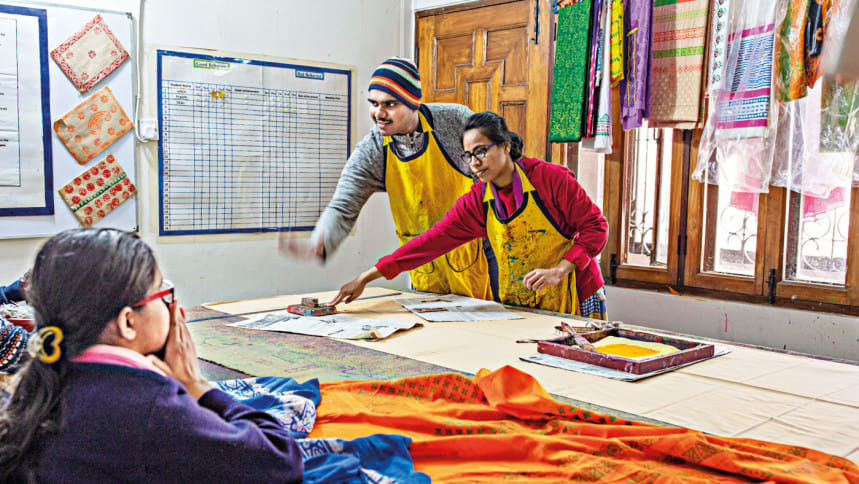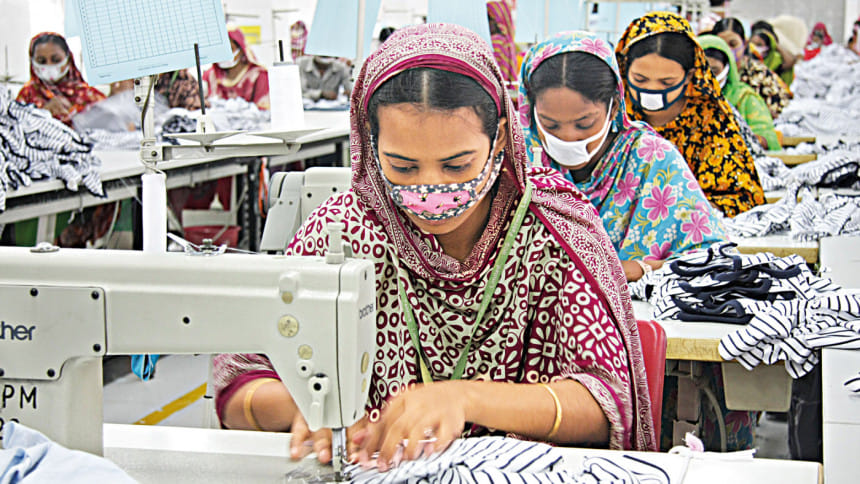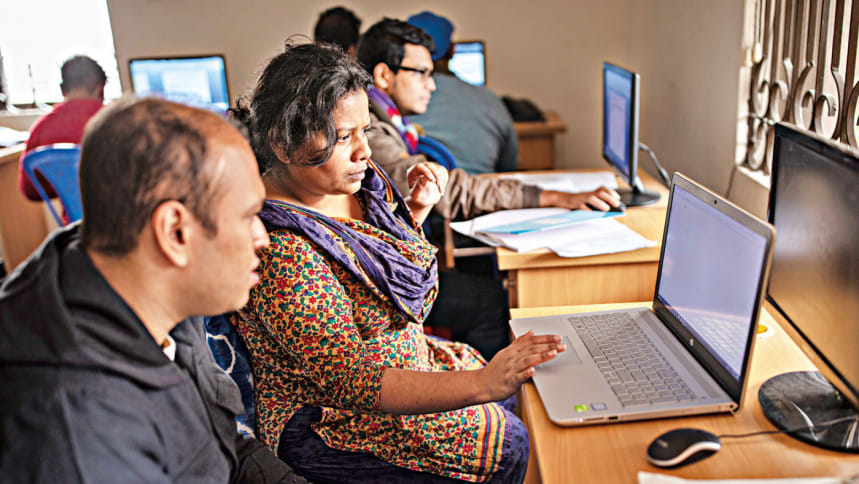Invest in women: Accelerate progress

Investing in women's empowerment is crucial for societal transformation, especially in Bangladesh's unique socio-economic landscape. As we strive for progress, prioritizing women's advancement isn't just ethical but necessary for lasting development. However, the global deficit in financing gender equality poses a significant challenge, including in Bangladesh. As we approach International Women's Day 2024, the call to 'Invest in Women: Accelerate Progress' grows stronger
Reflecting on Bangladesh's journey, women's participation across sectors has evolved significantly. With a focus on girls' education, the nation has achieved impressive ratios in primary, junior, and secondary levels, reflecting a commitment to educational equality.
The surge in women's workforce participation, from 4% in 1974 to 42.67% in 2022, demonstrates remarkable progress. Sectors like the garment industry, microcredit programs, and rural development initiatives have played pivotal roles in empowering women.
Healthcare advancements have led to significant improvements for women in Bangladesh. Maternal mortality rates have notably decreased, highlighting efforts to enhance women's access to medical services.

Bangladesh ranks 9th globally for women's political empowerment, showcasing strides in political inclusivity and representation.
Dr. Sanzida Akhter, a professor in the Department of Women and Gender Studies at the University of Dhaka, notes positive progress in women entering decision-making roles, engaging in STEM fields, and pursuing unconventional careers. However, she observes varying scenarios across different locations. While instances of supporting women in defying societal norms are encouraging, Dr. Sanzida argues that sustainable empowerment requires fundamental changes in key areas.
The impressive advancement of women's development in Bangladesh faces specific challenges that could hinder sustainability. Issues like child marriage and violence against women persist, threatening the country's social and economic progress.
According to the Bangladesh Sample Vital Statistics 2022 by BSS, there has been a notable increase in marriages occurring before the age of 15, rising from 4.6% in 2018 to 6.5% in 2022. Child marriage leads to various repercussions, including adolescent pregnancy, dropout from education, and social and economic vulnerability. Introducing cells in schools and providing training could help combat child marriage.
Dr. Sayema Haque Bidisha, a professor at the University of Dhaka's Department of Economics, emphasizes the need for strategic investment in eliminating these barriers. Despite existing grassroots committees, they often remain non-functional due to a lack of funds. Creating specific funds and offering incentives to those preventing child marriage could be vital. Public investment needs to be directed toward these committees to ensure their effective operation.
While Bangladesh boasts impressive primary school enrollment numbers, the female ratio declines at the secondary and tertiary levels. Women's participation in STEM fields is notably low, partly due to persistent denial of the notion that girls can excel in science-related subjects.
Inclusion in job market opportunities is crucial for true empowerment. Gender-restrictive norms act as barriers, hindering women from entering high-productivity, decision-making roles. Both public and private investment are essential to transform societal norms into a gender-sensitive environment. Government initiatives involve incentivizing the private sector financially, such as tax rebates, and implementing regulations to increase female representation in senior positions. Establishing daycare facilities and anti-harassment cells in workplaces, particularly within the private sector, is essential.
Investment in demand-based industries, along with creating alternative sectors such as caregiving, is necessary. Providing semi-skilled opportunities could empower female migrant workers, shifting them from exploitative domestic roles to caregiving positions.

The business sector has seen a rise in women's participation, particularly in SMEs through F-commerce and E-commerce platforms post-COVID. However, challenges remain, including financial knowledge gaps and difficulties in obtaining funding and managing business-related paperwork. Lila Rashid, former executive director of Bangladesh Bank, stresses the importance of thorough analysis to effectively invest in technology and business areas such as digital finance and platform-based businesses, where women are active participants, which can be transformative. Developing essential business skills, along with finance and management knowledge, is crucial for unleashing the potential of many women engaged in business.
Nahid Sharmin, a Gender Analyst at A2i, highlights the need to positively change societal mindsets, especially among men, for sustainable interventions and effective changes in these fundamental areas. "The government shows dedication through substantial budget allocations; however, the key lies in proper planning and strong implementation to realize the positive outcomes of this gender budget," she said.

 For all latest news, follow The Daily Star's Google News channel.
For all latest news, follow The Daily Star's Google News channel. 



Comments